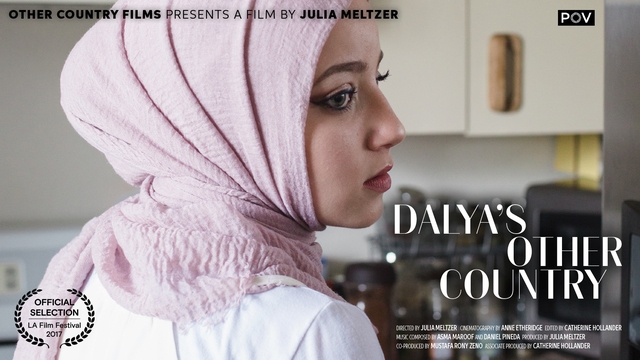The Producers

Julia Meltzer is a filmmaker and the founder and director of Clockshop, an arts organization that commissions and produces projects. She previously directed The Light In Her Eyes, a film about a Qur’an school for women and girls in Damascus, Syria. The Light In Her Eyes premiered at IDFA in 2011, was broadcast on the POV series on PBS in 2012, and toured the world with the Sundance Film Forward program. Meltzer lived in Damascus, Syria from 2006-2007 as a Senior Fulbright Fellow teaching journalism and filmmaking at the University of Damascus. Her film and video work has been exhibited at the Whitney Biennial, the Sharjah Biennial, The Toronto International Film Festival, and the Rotterdam International Film Festival.

Mustafa Rony Zeno is a filmmaker, photographer, cultural anthropologist and educator who grew up in Syria and now lives in his birthplace, Los Angeles. His work focuses on identity and the fringes and spaces between of culture and religion. Mustafa was formerly director of the Arab Film Festival in Los Angeles and is a ‘NewGround Muslim-Jewish fellowship’ alum. Mustafa also teaches Levantine Arabic at an Orthodox Jewish high school.
Making The Film

“Dalya’s Other Country” follows my last film “The Light In Her Eyes” about a Qur’an school for women and girls in Damascus, Syria. On and off from 2005 to 2010 I lived in Damascus and often traveled to Aleppo. Witnessing the oldest continuously inhabited city in the world where ancient trade routes, commerce, and culture were active—despite constraints imposed by the Syrian regime—made a deep impression on me. In 2012, while we were in distribution of TLIHE, the city of Aleppo was in the process of being destroyed by civil war. I wanted to document a family or an individual who was connected to this city. My daughter was born in 2012 and I no longer had the flexibility to travel and leave home as I did for my previous film, so I searched for a way to tell a story about Aleppo from close to home. I met Dalya and her mother Rudayna shortly after they arrived from Aleppo, and knew that I had found a compelling story.
The home life of most Muslims is very private, especially for women. I have been able to shoot with this family over an extended period of time and this has allowed me to get to know them, gain their trust, and gradually understand their issues and challenges in a deeper way. “Dalya’s Other Country” is made in the tradition of observational cinema, favoring intimate cinematography and an emphasis on placing the audience in close connection with the subject matter. The scenes are edited to immerse the viewers in Dalya and Rudayana’s world and create a human connection with the subjects so audiences understand the world from their perspective. —
Julia Meltzer
 Dalya, a Syrian refugee living in America, tries to be a normal teenager. Yet under the shadow of Donald Trump’s rise to power, she must contend with daily reminders of her otherness, like being the only girl in school that wears a hijab. Keeping her Muslim father proud and integrating into American teen life with make-up, proms and boys is a hard line to walk. This touching film explores a young life caught between highly politicised identities.
Dalya, a Syrian refugee living in America, tries to be a normal teenager. Yet under the shadow of Donald Trump’s rise to power, she must contend with daily reminders of her otherness, like being the only girl in school that wears a hijab. Keeping her Muslim father proud and integrating into American teen life with make-up, proms and boys is a hard line to walk. This touching film explores a young life caught between highly politicised identities.
 LA Film Festival – Official Selection
LA Film Festival – Official Selection
 Athena Film Festival – Official Selection
Athena Film Festival – Official Selection
 1 Journey Festival – Official Selection
1 Journey Festival – Official Selection
 Houston Asian American Pacific Islander Film Festival – Official Selection
Houston Asian American Pacific Islander Film Festival – Official Selection
 Southern Circuit Tour – Official Selection
Southern Circuit Tour – Official Selection
 Meet the Press – Film Festival with AFI
Meet the Press – Film Festival with AFI








